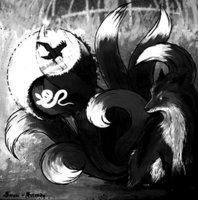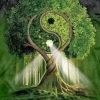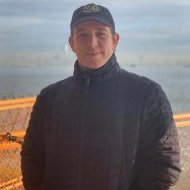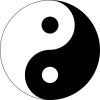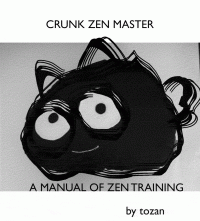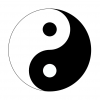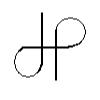Search the Community
Showing results for tags 'Philosophy'.
Found 17 results
-
I know that our efforts all come to nothing. Analyze life, tear its trappings off, lay it bare with thought, with logic, with philosophy, and its emptiness is revealed as a bottomless pit; its nothingness frankly confesses to nothingness, and Despair comes to perch in the soulI know the end of us all is nothing, I know that at the end of Time, the reward of our toil will be nothing — and again nothing. I know that all our handiwork and all our ideas will be destroyed. I know that not even ash will be left from the fires that consume us. I know that our ideals, even those we achieve, will vanish in the eternal darkness of oblivion and final non-being. There is no hope, none, in my heart. I know, No promise, none, can I make to myself and to others. No recompense can I expect for my labors. No fruit will be born of my thoughts. I know the time — eternal seducer of all men, eternal cause of all effects — offers me nothing but the blank prospect of annihilation. So, my dignity is broken and weak, in recognition of my impending defeat.The man who is alone, who stands on his own feet, who is stripped bare, who asks for nothing and wants nothing, who has reached the apex of disinterestedness not through blind renunciation but through excess of clear vision, turns to the world which stretches out before him as a burned prairie, as a devastated city — a world in which no churches, asylums, refuges, ideals, are left — and says: «Though you promise me nothing I am still with you, I am still an atom of your energies, my work is part of your work; I am your companion and your mirror as you march on your merciless way. But I owe nothing to any one. I would be responsible to freedom alone.
- 2 replies
-
- philosophy
- spirituality
-
(and 3 more)
Tagged with:
-
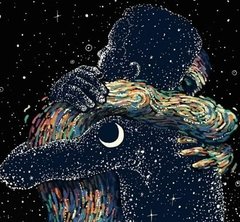
Eastern and Western lenses to Analytic Idealism with Bernardo Kastrup and Swami Sarvapriyananda
silent thunder posted a topic in Hindu Discussion
Both of these men have elicited my deep respect over time with their insights and sharings. To hear them speak together and explore the commonalities inherent in their remarkably different approaches to exploring the nature of reality and human consciousness is a delight to me. One of my earliest exposures to the incredible crossover of quantum theory in western physics and the long established lineages of eastern esoteric knowledge came via the sharings of Fritjoff Capra's amazing book and his insights revealed in The Tao of Physics, in which he revealed the potent similarities of insight that western quantum theory was arriving at (much to the credit of the likes of Niels Bohr and David Bohm) and how western physics had come to mirror on nigh on every level, deep insights known in the east in vedanta, taoist and buddhist circles for many centuries. Bernardo Kastrup, who's background is hard physics, has evolved into one of the leading proponents of philosophical Idealism which aligns with what my experience of reality has been from early childhood. To see the similarities reflected in modern physics and idealism philosophical theory to ancient established lineages is a comfort and wonder of sorts. Swami Sarvapriyananda will likely be very familiar to most here. What delights me most of all is perhaps the reinforcement of the notion that source is one and we all are extensions of it, and so, when sincerely approached, any avenue of study can eventually lead to similarities of realization and insight reflected in how the human perceptual apparatus engages with and interprets the signals inherent in the field of energy we all stem from and occupy. Thought some others might appreciate it as well, so here's the conversation. -
-
- alchemy
- philosophy
-
(and 1 more)
Tagged with:
-
Vedanta Philosophy explains about ways to lead a Selfless Life, Truthful life, Values to be followed in life, and final Self Realization. First and foremost of values is "Non hatred towards all the beings of the world". Not hurtful towards any being in the world. Compassion, Friendliness, Non anger, Self Control (Sense Control), Shraddha (Faith), Away from Crowd, Unaffected by joy and sorrow, heat and cold, Not desire ridden, Non jealousy. Vedanta covers both Idealism and Realism. Leading a life by following: i) Waking up early in the morning betwween 4.00A.M and 5.30A.M. This time is called Brahma Muhurtha (4.00 A.M - 6.00 A.M), Studying Scriptural texts and related texts like Vedanta Treatise, Srimad Bhagavad Gita, Choice Upanishads, Select English Poems (Books by Swami. A.Parthasarathy). ii) Practice of Karma Yoga (Path of Action), Bhakthi Yoga (Path of Devotion), Gnana Yoga (Path of Knowledge) according to one's constitution. iii) Steadfastness, Determination to achieve the goal takes the individual to Meditation and Self Realiation.
- 15 replies
-
- 2
-

-

-
- philosophy
- idealism
-
(and 3 more)
Tagged with:
-
Hi, I'm doing Zhan Zhuang and am interested in meditation, spiritual practice in general. I have recently very much enjoyed books by Anthony de Mella, Lester Levenson, Rob Nelson, ... I'm also learning Mandarin and now I would love to start reading/learning with Chinese books that have a similar paradigm hoping that the added interest and motivation because of the topic will support the learning. Any recommendations would be greatly welcome! Thanks!
-
- daoism
- philosophy
-
(and 3 more)
Tagged with:
-
Hello there Im taoxingzhi, young adult from from northern europe glad to have found this site. I first got introduced into taoism through as i recall it, Samurai Jack. It was a cartoon I used to watch before going to school, it had fighting and the samurai theme was edgy for a kid. In one episode, moreover, i remember there being a yinyang symbol on an amulet. Life continued and in my teens i battled through serious existential crises, nihilism, and i can only say that these things will stay with my my whole life. I remember seeing the yinyang symbol once or twice again, but due to my surroundings at the time it was unimaginable to allow such radical thought (compared to where i was then) into my life. Then, finally, when im at another city during early adulthood i have a particularly bad patch of life and partly because of that i start to gather information from eastern philosophies and religions, whatever you want to call them. Traditions of wisdom, i guess? Taoism seems to resonate with me most strongly, after comparing it to buddhism, confucianism and shinto. Im really a novice at this all, and scientific or textual knowledge is not why i find taoism so great. Its just a tradition of wisdom that time after time has the tendency to make my life a little bit better, usually it happens through these tiny snippets from daodejing, or work of alan watts, or just reading what someone else has said about it. I can only say that my life is a little bit better because of taoism, im grateful for it and pleased to find a place where people talk about it. Nice to meet you! -taoxingzhi
- 1 reply
-
- 2
-

-
- taoism
- philosophy
-
(and 1 more)
Tagged with:
-

Eastern Intuition and Western Cognition - Where and how do they meet?
dwai posted a topic in General Discussion
http://www.medhajournal.com/eastern-intuition-and-western-cognition-where-and-how-do-they-meet/-
- philosophy
- vedanta
-
(and 1 more)
Tagged with:
-
As a Taoist you are supposed to adapt to circumstances like a bending reed. But how about living in a society that is anything but Taoist. Should you then live in a non-Taoist manner in order to follow the Taoist recommendation on adapting to circumstances. Any thoughts on this matter? Personal note: I like Taoism as a philosophy somewhat in the spirit of Alan Watts and Raymond Smullyan.
-

if you believe in it, it will exist or else nothing really exist?
Shad282 posted a topic in General Discussion
Do you think that nothing in life is static and everything is relative? In other words, if you dnt believe in chi/energy, you won't feel it. It could be that the belief is what creates our own reality, what we feel, see, hear, touch, smell, taste. And nothing really exist... we just inherited genetically and got taught beliefs that makes our own reality and put us with people with same of those beliefs that reinforce them and thus lead to make it a very real reality. Nd could be that the chakras, energy/chi, meridians...etc just another packaged reality, that we can choose to believe in out of many other realities, all is real but nothing really exist? Are there some static stuff in the world? That foes beyond all possible realities? Or could a majority belief be made a a static to all other possible realities? Does nothing really exist.. because all realities cancel each others out and what is left is emptiness or just another belief? thank you- 114 replies
-
We normally use the terms Existence and Life very casually. What do they mean actually? What factors determine existence or life. I would like your ideas on this. I would also like to have an in depth analysis into this topic of discussion.
-
This topic is entirely inspired by Son of the God's topic on light a month back. where-talking on the nature of Light- he said something along the lines of: Darkness is the opposite of Light the absence of Light. This produced a pretty significant deepening of understanding for me that has lead to a purification, and a letting go of many things in many ways. There was a lot of depth to this simple understanding. Thanks to Kingdom Hearts (but really my own ignorance) I used to think Light and Darkness were opposites, they were Yin and Yang that always had to go together. You couldn't have all Light! You had to have Darkness too! But this is not the nature of the relationship at all. Light obliterates Darkness, and Darkness cannot exist on the same plane as light at all. I realized that what I thought of Darkness was only Shadows, just tricks and illusions dancing. Then on a deeper level I began to question: what creates these shadows? This is harder to illustrate with words so I am hoping someone else will be able to chime in here: but humans create the shadows. We get in the way of Light with our filters and our blockages and this creates shadows, and we think of these shadows as Darkness and this can become some sort of identification we have-that we have evil intrinsically and this cannot be eradicated because you can't take Yin out of the Yin/Yang right? This level of thinking is really reflected in nature's that focus on our "sinful nature" and how we have base desires that can never be escaped from. Basically Light is beyond Duality and either this thread is "hmm about time you figured out" or hopefully it offers clarity to anyone else struggling to integrate parts darker parts of themselves and not thinking that Sagehood or purity is possible. The verse to meditate on from the DDJ: "What rises up appears bright What settles down appears dark Yet there is neither darkness not light just an unbroken dance of shadows"
- 4 replies
-
- 3
-

-
- Philosophy
- Symbolism
-
(and 1 more)
Tagged with:
-
Gui Zhen Society in Staten Island NY. Hi Every One! I'm Lin, been on the Dao Bums for ages now, and recently moved back to the U.S. from China. I re-established my cultivation school in Staten Island and am offering a number of cultivation methods I have been putting together over the last several years. One of them is called White Canopy Meditation, a.k.a. Jiu Wu Tan Gong (Nine Five Platform Cultivation). Its quite a lengthy description, so I wil leave a short one here and link you to my personal practice page for the full idea: White Canopy Description Also new to the martial arts world, as well as to the Qigong, meditation, etc world, my own expression of both spiritual cultivaton and martial art , Origin and Illusion (Zong Huan). Origin and Illusion: Zong Huan Peace and Blessings, Lin Ai Wei Gui Zhen Society, Pure Mind Center Pure Mind Center Blog
-
This is an article by a wonderful human being and a brilliant philosopher friend of mine - Prof. Antonio De Nicolas... http://www.infinityfoundation.com/mandala/i_es/i_es_denic_self_frameset.htm
- 7 replies
-
- 4
-

-
- philosophy
- indian
-
(and 2 more)
Tagged with:
-
From what I've gathered Taoism and Daoism are basically the same thing; just different translations of the Chinese word. I've heard a few people say they are a little bit different though. Are they?
-
Hi all, We all know about the principle of relaxation in meditative and chi-cultivating disciplines. We've all felt the profound benefits of relaxation. However, although many of us are learning from masters who are advanced in age, a lot of us are young and full of energy, vigor, and speed. So I want to get some opinions on this: how do you resolve the contradictory disciplines of relaxed power and peak performance (demanding as much as you can from yourself, getting high performance in your life overall, not just physically but mentally, working long hours, pushing yourself to achieve goals, etc) ? For example, I love the "ideal" of going to bed early and waking up several hours before dawn to practice my chi kung, forms, and meditation. It seems extremely sensible to sync my sleep schedule with the sun. But often when I wake early and have a great day, I've gotten so much momentum that I'm still amped come sundown, and I realize I could work (or play) for 12 more hours. But this goes against the precepts of just taking it easy, and this is tough for me, because we live in a world where the 70% rule doesn't really cut it. For most of us we have to rolling out the 110% power. Any suggestions? I'd love to hear how other peak performance people synthesize these seemingly opposite ideas.
- 16 replies
-
Hello everyone! My question is - what concepts does one need to accept to call himself a Daoist? My answer would be simply - "The Dao produced One, One produced Two, Two produced Three, Three produced ten thousand things." My understanding is that that metaphor denotes periods of creation in the Universe. Dao = Primordial being One = Existence Two = Yin, Yang Three = Yin, Yang and Qi, however, this is disputed Ten thousand things = Everything that is Am I right or wrong? So accepting those basic concepts: Dao, Yin-Yang, Qi and perhaps the Three Virtues (compassion, humility, moderation), one can call himself a Daoist. There is also the difference between philosophical and religious Daoism, which sounds like a Western misconception. I believe every Daoist is partially both religious/spiritual and philosophical. I sincerely doubt that Daoists agree with everything Lao Zi, Zhuang Zi or Lie Yukou said. What are your thoughts? How would you define the basic concepts of Daoism and how would you define a Daoist? Thanks in advance!
-
The Master of the Hidden Storehouse is a very easily comprehended work attributed to Keng Sang-tzu, a disciple of the old scholar, and is a classical treatment of the taoist philosophy with emphasis on leadership and governance. I found this little gem buried in the back half of a book called Thunder in the sky, an english language translation by Thomas Cleary which includes two texts: Master of Demon Valley, and Master of the Hidden Storehouse. The book is published by Shambhala, isbn# 1-57062-660-x (in case anyone gets bored with the pace that I lay it out on this thread and wants to get a copy for themselves). After reading this book, I must conclude that it is essential reading for anyone who wishes to be effective in a leadership role from the point of presiding over a nation, a state, a province, a villiage, a neighborhood, a house, or themselves. The lack of understanding of the way when it comes to governance in our world's leaders is shocking, but not unexpected, as the persons most likely to seek public office are, by their natures, the ones least likely to be competant to fill these roles. By way of overview, there are nine segments in this text: Preserving the way intact, Applying the way, The way of government, The way of leadership, The way of administrators, The way of the wise, The way of education, The way of agriculture, and The way of war. Get your ink and brushes ready: you will want a copy of this text preserved for future generations.
- 2 replies
-
- 5
-

-
- Tao
- Leadership
-
(and 6 more)
Tagged with:


